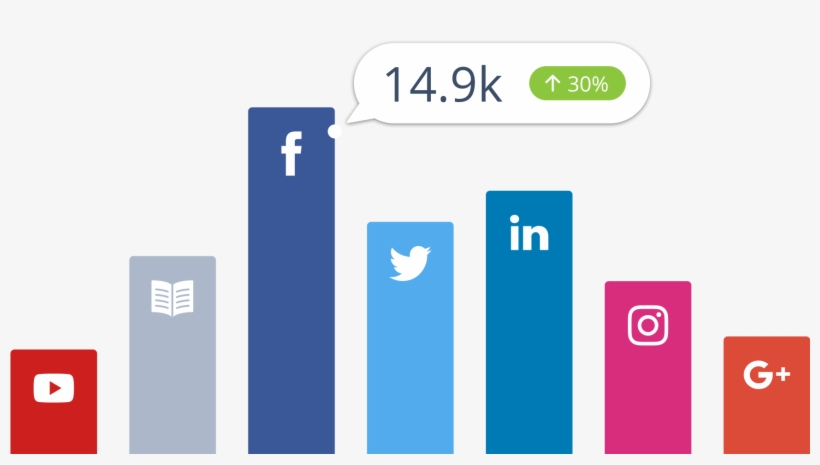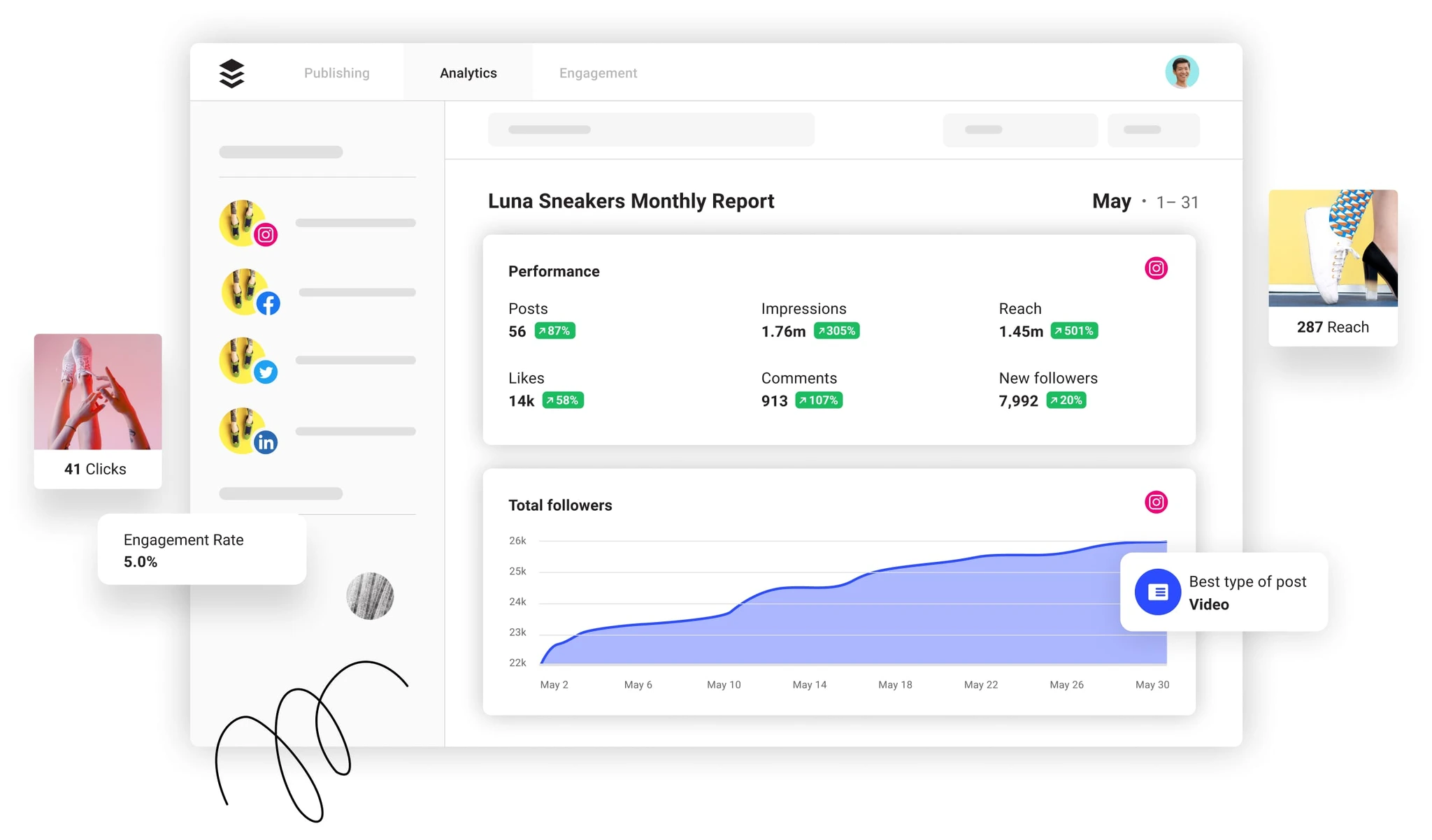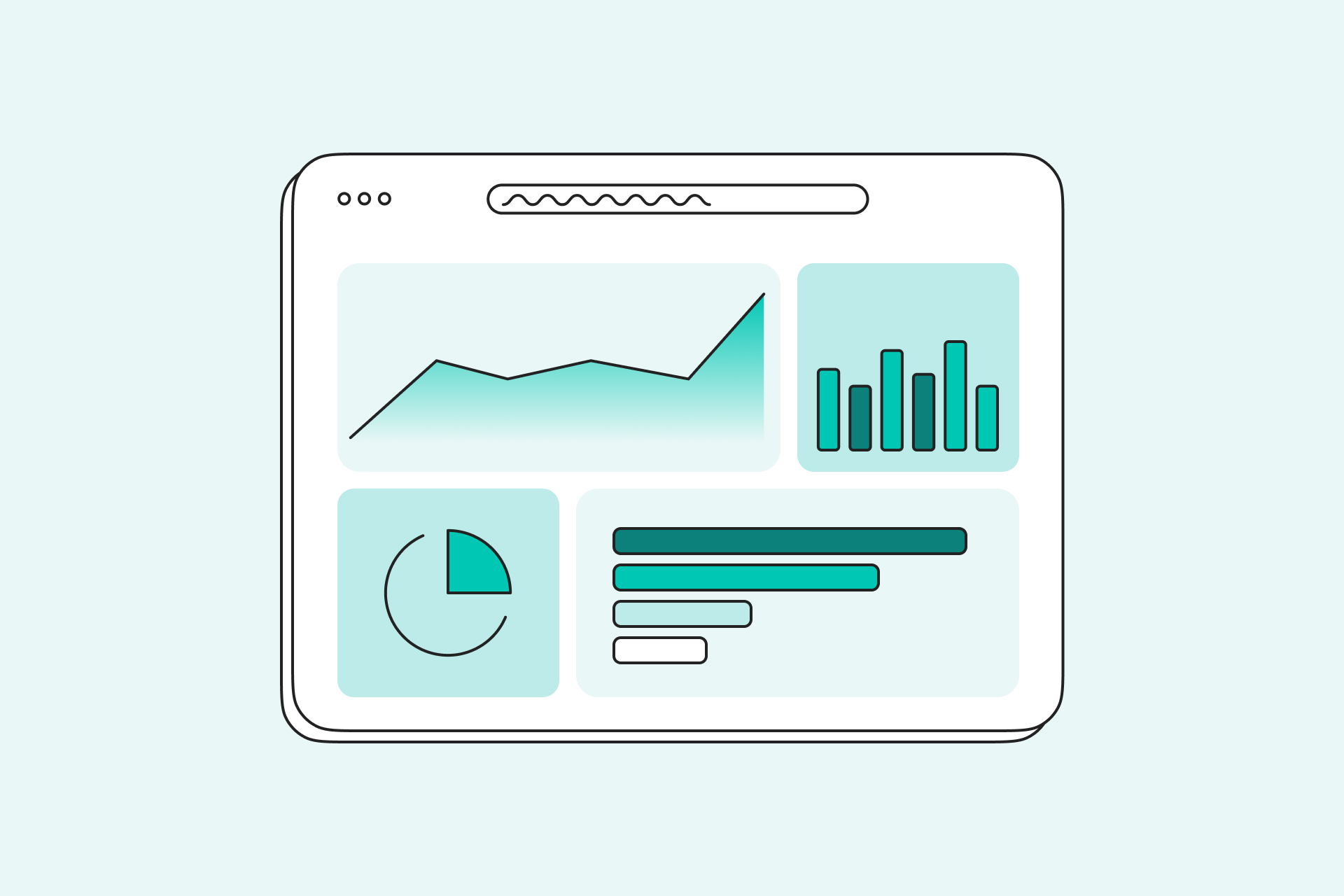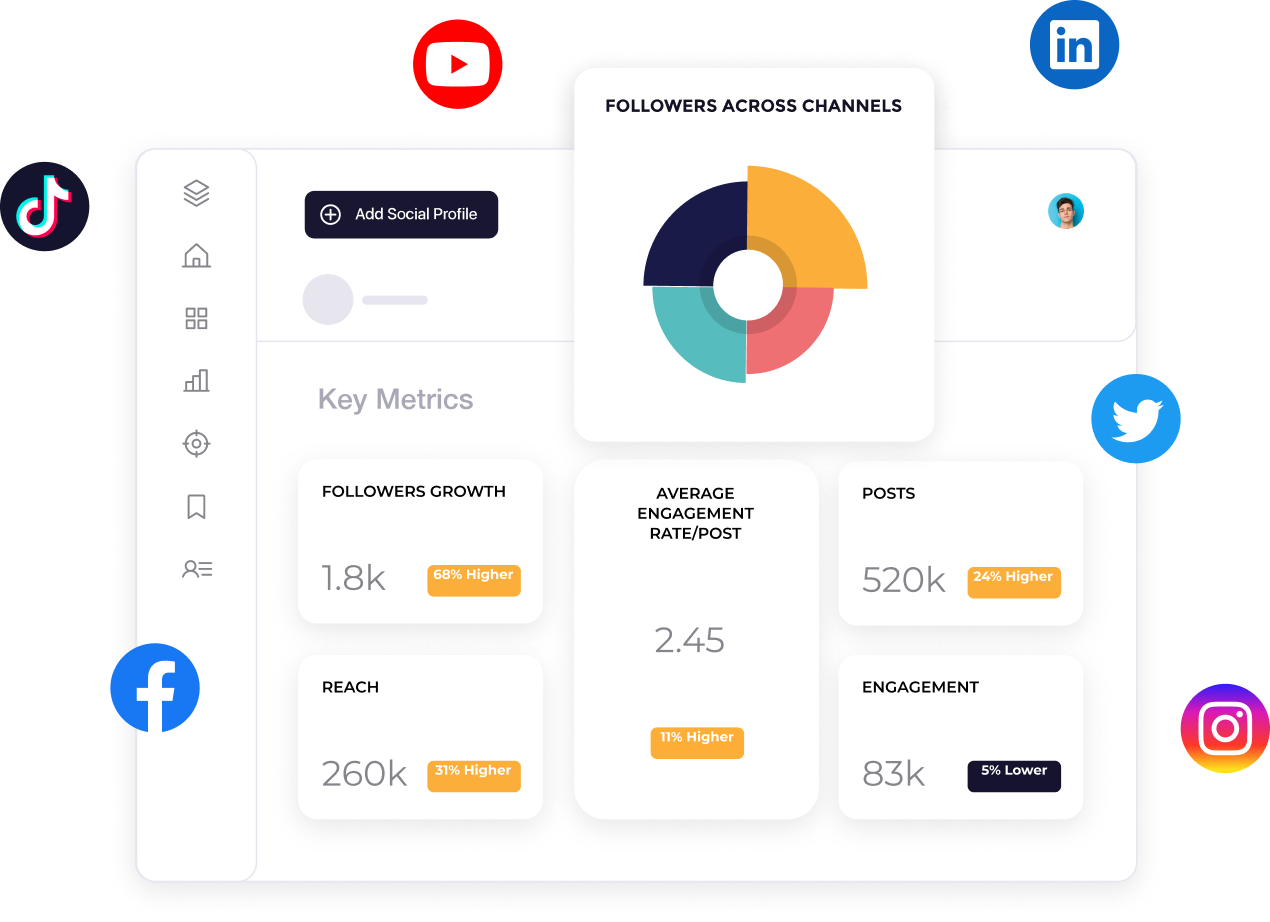In today’s digital age, social media has become an integral part of our lives. Whether it’s for personal use or business promotion, platforms like Facebook, Twitter, Instagram, and LinkedIn have transformed the way we connect and share information. As social media continues to evolve, the need for effective analytics platforms has become paramount. In this article, we will explore the importance of social media analytics platforms, their key features, and how they can help businesses make data-driven decisions.
Understanding Social Media Analytics Platforms

What are Social Media Analytics Platforms?
Social media analytics platforms are tools or software solutions that allow businesses to collect, analyze, and interpret data from various social media channels. These platforms provide insights into key metrics, audience behavior, engagement rates, and other valuable data points.
Key Features of Social Media Analytics Platforms
- Data Collection: Social media analytics platforms gather data from multiple social media channels and consolidate it into a unified dashboard.
- Performance Tracking: They track and measure key performance indicators (KPIs) such as reach, impressions, engagement, conversions, and more.
- Sentiment Analysis: These platforms use natural language processing (NLP) algorithms to analyze the sentiment behind social media mentions and comments.
- Competitor Analysis: Social media analytics platforms help businesses monitor their competitors’ social media performance and benchmark against industry standards.
- Influencer Identification: They assist in identifying influential individuals or accounts that can help amplify a brand’s message and reach a wider audience.
Benefits of Utilizing Social Media Analytics Platforms
By leveraging social media analytics platforms, businesses can:
- Gain actionable insights into their audience’s preferences, interests, and behaviors.
- Measure the effectiveness of their social media campaigns and make data-driven decisions.
- Identify trends and opportunities for content creation and audience engagement.
- Optimize marketing strategies and allocate resources more effectively.
- Stay ahead of their competitors by monitoring industry trends and customer sentiment.
Choosing the Right Social Media Analytics Platform
To select the most suitable social media analytics platform for your business, consider the following factors:
Identifying Your Goals and Objectives
Clearly define your social media goals and objectives. Do you want to increase brand awareness, drive website traffic, generate leads, or improve customer engagement? Understanding your specific needs will help you narrow down your options.
Evaluating Features and Tools
Compare different social media analytics platforms based on their features and tools. Look for capabilities such as real-time monitoring, customizable reporting, influencer identification, sentiment analysis, and integration with popular social media channels.
Considering Budget and Scalability
Evaluate the cost of each platform and determine whether it aligns with your budget. Additionally, consider the scalability of the platform. Will it accommodate your growing business needs in the future?
Popular Social Media Analytics Tools: A Comparison

When it comes to social media analytics platforms, there are several popular options available in the market. Let’s take a closer look at three noteworthy platforms and compare their features, advantages, and limitations.
Aim Insights
Aim Insights offers a range of powerful features to analyze social media data. With its intuitive interface and customizable reporting, users can easily track key metrics and gain valuable insights. One notable advantage of Aim Insights is its advanced sentiment analysis, which helps businesses understand the sentiment behind social media mentions and comments.
Brandwatch
For businesses seeking a comprehensive social media analytics solution, Brandwatch is worth considering. This platform offers a wide array of features to track performance, identify influencers, and monitor brand reputation. With its user-friendly interface, businesses can easily navigate through the data and derive meaningful insights. One of the notable advantages of Brandwatch is its real-time monitoring capabilities, allowing users to stay updated on the latest trends and conversations. However, it’s essential to note that Brandwatch may have a steeper learning curve for users who are new to social media analytics.
Brand24
Brand24 stands out for its robust analytics tools and competitive pricing. With a focus on comprehensive competitor analysis, this platform enables businesses to gain a deeper understanding of their industry landscape and make informed decisions. Brand24 also offers features for audience behavior analysis and demographic insights, allowing businesses to tailor their strategies accordingly. It’s worth considering that while Brand24 provides reliable data analysis, it may have fewer advanced features compared to other platforms.
How Social Listening Analytics Tools Enhance Marketing Strategies
Social media analytics platforms play a crucial role in enhancing marketing strategies for businesses. Let’s explore some key ways in which these platforms can be utilized effectively:
Tracking Key Performance Indicators (KPIs)
One of the primary benefits of social media analytics platforms is the ability to track and measure key performance indicators (KPIs). These metrics include reach, engagement, conversions, click-through rates, and more. By closely monitoring these KPIs, businesses can evaluate the success of their social media campaigns and make data-driven decisions to optimize their marketing efforts. This helps them identify what works and what doesn’t, allowing for continuous improvement.
Monitoring Brand Reputation and Sentiment Analysis
Maintaining a positive brand reputation is crucial in today’s competitive landscape. Social media analytics platforms enable businesses to monitor brand mentions, sentiment, and customer feedback in real time. Through sentiment analysis, these platforms employ advanced algorithms to analyze the tone and sentiment behind social media mentions and comments. This allows businesses to identify potential issues, address customer concerns promptly, and manage brand reputation effectively. By understanding customer sentiment, businesses can tailor their communication strategies and ensure positive brand experiences.
Identifying Influencers and Building Relationships
Influencer marketing has become a powerful strategy for businesses to expand their reach and engage with their target audience. Social media analytics platforms facilitate the identification of influential individuals or accounts that align with a brand’s values and target audience. By leveraging these platforms, businesses can identify potential influencers, analyze their engagement rates and follower demographics, and build meaningful relationships. Collaborating with influencers helps amplify a brand’s message, increase brand visibility, and reach a wider audience, ultimately driving brand awareness and conversions.
Analyzing Audience Behavior and Demographics
Understanding the behavior and demographics of the target audience is crucial for developing effective marketing strategies. Social media analytics platforms provide valuable insights into audience behavior, interests, preferences, and demographics. By analyzing this data, businesses can gain a deeper understanding of their audience’s needs, motivations, and pain points. This information helps in tailoring content, targeting specific demographics with relevant messaging, and improving audience engagement. By crafting personalized and targeted campaigns, businesses can effectively connect with their audience and drive higher conversion rates.
Benchmarking and Competitor Analysis
In the dynamic landscape of social media, businesses need to stay ahead of their competitors. Social media analytics platforms offer benchmarking and competitor analysis features that allow businesses to monitor their competitors’ social media performance and compare it against industry standards. By gaining insights into their competitors’ strategies, content performance, and audience engagement, businesses can identify areas for improvement, discover new opportunities, and adjust their strategies accordingly. This competitive intelligence helps businesses stay relevant, differentiate themselves from the competition, and make data-driven decisions.
Best Practices for Effective Social Listening Analytics

To make the most out of social media analytics platforms, here are some best practices to follow:
Setting Clear Goals and Objectives
Before diving into social media analytics, it’s crucial to define clear goals and objectives. Determine what you want to achieve through your social media efforts. Are you aiming to increase brand awareness, drive website traffic, generate leads, or improve customer engagement? Setting specific and measurable goals will help guide your analytics efforts and ensure that you are tracking the right metrics.
Choosing Relevant Metrics
When it comes to social media analytics, not all metrics are created equal. Select the metrics that align with your goals and provide meaningful insights. For example, if your objective is to drive website traffic, focus on metrics like click-through rates, website referrals, and conversions. Vanity metrics, such as likes and followers, are less indicative of true engagement and impact. Choose metrics that provide actionable insights and help you make data-driven decisions.
Regular Monitoring and Reporting
Social media analytics is an ongoing process. Regularly monitor your metrics and analyze the data to uncover trends, patterns, and areas for improvement. Set up reporting mechanisms to track progress over time and identify what strategies are working and what needs adjustment. By continuously monitoring and reporting on your social media performance, you can optimize your efforts and adapt to changing trends and audience preferences.
Leveraging Real-Time Data
Social media moves at a rapid pace, and real-time data is invaluable. Take advantage of the real-time monitoring capabilities of social media analytics platforms to stay updated on the latest trends, conversations, and opportunities. This allows you to respond promptly to customer queries, address emerging issues, and engage with your audience promptly. Real-time data provides a competitive advantage in a fast-paced social media landscape.
Continuous Learning and Optimization
Social media analytics is a journey of continuous learning and optimization. Regularly review your data, analyze the insights, and apply those learnings to refine your strategies. Experiment with different approaches, test new content formats, and track the results. Social media is an ever-evolving space, and staying agile and adaptable is key to success. Embrace a growth mindset and leverage your social media analytics to iterate, improve, and deliver more impactful results.
Future Trends
The field of social media analytics continues to evolve, driven by technological advancements and changing consumer behaviors. Here are some future trends that are shaping the landscape of social media analytics:
Artificial Intelligence and Machine Learning
Artificial intelligence (AI) and machine learning (ML) are revolutionizing social media analytics. These technologies enable more sophisticated analysis of social media data, such as sentiment analysis, image recognition, and predictive analytics. AI-powered algorithms can identify patterns, detect anomalies, and provide actionable insights at scale. As AI and ML continue to advance, social media analytics platforms will become even more powerful in uncovering valuable insights and predicting future trends.
Advanced Sentiment Analysis
Sentiment analysis is a critical aspect of social media analytics. As social media conversations become more complex, sentiment analysis algorithms are becoming more advanced. Future social media analytics platforms will leverage natural language processing (NLP) techniques and contextual understanding to accurately interpret the sentiment behind social media mentions. This will provide businesses with deeper insights into customer perceptions, emotions, and preferences.
Predictive Analytics and Forecasting
Predictive analytics is poised to become a prominent feature in social media analytics platforms. By analyzing historical data and identifying patterns, predictive analytics models can forecast future trends, audience behavior, and campaign outcomes. This allows businesses to proactively plan their social media strategies, optimize resource allocation, and anticipate customer needs. Predictive analytics empowers businesses to stay ahead of the curve and make strategic decisions based on data-driven predictions.
Cross-Channel Integration
As businesses expand their social media presence across multiple platforms, the need for cross-channel integration in analytics becomes more apparent. Future social media analytics platforms will offer seamless integration with various social media channels, consolidating data from multiple sources into a unified dashboard. This holistic view enables businesses to analyze their performance across different platforms, identify cross-channel trends, and optimize their overall social media strategies.
Data Privacy and Security
Data privacy and security will continue to be critical concerns in social media analytics. As regulations and consumer expectations evolve, social media analytics platforms must prioritize data privacy and adhere to strict security protocols. Future platforms will invest in robust data protection measures, encryption technologies, and user consent mechanisms to ensure the privacy and security of customer data.
Conclusion
Social media analytics platforms have revolutionized the way businesses approach social media marketing. These platforms provide valuable insights, metrics, and tools to track performance, analyze audience behavior, monitor brand reputation, and make informed decisions. By utilizing social media analytics effectively, businesses can optimize their marketing strategies, engage their target audience, and achieve their goals.
To make the most out of social media analytics, it’s essential to set clear goals, choose relevant metrics, and continuously monitor and optimize your strategies based on data-driven insights. Additionally, staying informed about future trends in social media analytics, such as AI and machine learning, advanced sentiment analysis, predictive analytics, cross-channel integration, and data privacy, can give businesses a competitive edge.
Unlock the power of social media analytics platforms and take your social media marketing to new heights. Stay ahead of the curve, adapt to changing trends, and make informed decisions that drive meaningful results. Request a demo from Aim Technologies today and discover how their advanced social media analytics platform can elevate your marketing strategies.
FAQs
What is social media analytics?
- Social media analytics refers to the process of collecting, analyzing, and interpreting data from social media platforms to gain insights into audience behavior, content performance, and overall social media strategies. It involves tracking key metrics, such as reach, engagement, conversions, sentiment analysis, and competitor analysis, to inform decision-making and optimize social media marketing efforts.
How do social media analytics platforms enhance marketing strategies?
- Social media analytics platforms enhance marketing strategies by providing valuable data, insights, and tools to track performance, monitor brand reputation, identify influencers, analyze audience behavior, and make data-driven decisions. These platforms help businesses understand the effectiveness of their social media campaigns, optimize their content, engage with their target audience, and stay ahead of their competitors.
What are the best practices for effective social media analytics?
- Some best practices for effective social media analytics include setting clear goals and objectives, choosing relevant metrics aligned with those goals, regularly monitoring and reporting on performance, leveraging real-time data, and continuously learning and optimizing strategies based on insights. It’s important to stay updated with the latest trends and advancements in social media analytics to make the most out of these platforms.
What are some future trends in social media analytics?
- Future trends in social media analytics include the increased use of artificial intelligence and machine learning for more sophisticated analysis, advanced sentiment analysis to understand customer sentiment accurately, predictive analytics and forecasting to anticipate trends and outcomes, cross-channel integration for a holistic view of social media performance, and a focus on data privacy and security to protect customer data in compliance with regulations and consumer expectations.
How can businesses benefit from social media analytics?
- Businesses can benefit from social media analytics by gaining insights into audience behavior, optimizing content and marketing strategies, monitoring brand reputation, identifying influencers, benchmarking against competitors, and making data-driven decisions to achieve their goals. Social media analytics helps businesses maximize the impact of their social media marketing efforts and drive meaningful results.




